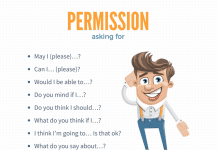Losing a loved one is something we all have in common no matter our age, culture, race, or nationality.
However, saying I am so sorry for your loss although acceptable can become very generic and unfeeling if not expressed with the correct tone and intonation.
How close your relationship is with the person to whom you are speaking also can influence how you would express your thoughts and feelings.
Empathy vs Sympathy
If you are talking with a close friend who has just lost a member of their family, no doubt you will also have some strong feelings about their loss too. We describe this as empathy because you feel their pain yourself.
However, if the person is only an acquaintance, then it is most likely you won’t feel their pain at all, but you probably want to express a few words to them, this is called, sympathizing or showing sympathy.
Skype English Lesson with a native AMERICAN or BRITISH teacher ››
How to say so sorry for your loss with Empathy?
If you are empathetic, you most likely would like to give your friend a hug and say something like I am here for you.
The death of a loved one is something that can leave anyone speechless, interestingly not knowing what to say is actually another way to show empathy, I don’t know what to say, I wish I had the words to give you some comfort.
While many people think that speaking about the deceased person is a no, no, it is quite often the opposite. Speaking in an affectionate, positive way about the individual can have a healing effect on our friend or family.
I remember when so-and-so called to check and see how I was doing after my operation, he/she was always so thoughtful; I will miss him/her.
Close friends or family can let the grieving person know they are there to help by simply saying, I’m here for you, feel free, to talk to me whenever you would like. I am happy to listen.
How to say so sorry for your loss with Sympathy?
Although most of the phrases we used above can also be used to show sympathy too, there are further expressions that are appropriate to use also.
For example, I can only imagine what you are feeling. No matter how you feel, you know the person must be feeling even worse.
A very common expression made by individuals with religious beliefs is, you and your family are in my thoughts and prayers. Even if the grieving person is not religious, they will often gratefully accept your expression of sympathy.
Skype English Lesson with a native AMERICAN or BRITISH teacher ››
What not to say!
Few situations are as uncomfortable as when someone says something inappropriate to a grieving person.
Their sadness may turn into anger which is then directed towards anyone who says something even slightly offensive to them. For this reason, avoid saying things like the following statements.
- He/she is in a better place.
- It was their fault anyway.
- They deserved what they got.
- I know how you feel.
- Everything happens for a reason, but life goes on.
- You’ll get past this, be strong.
- Stop crying; it’s OK.
- They died some time ago, aren’t you feeling better yet?
- God wanted another angel in heaven.
- You can always have another baby.
- At least he/she went out with a bang!
- It was his/her time to go.
All of these expressions are incorrect as they can be offensive to any close family or friends who are grieving.
These phrases can make it sound like that what happened is nothing, or that God, or the person himself, was to blame for what happened. As a rule, just stay clear of blaming anybody for the loss of a loved one.
Be very careful to think before you speak when expressing sorrow or someone’s loss. Think back to when it has happened to you perhaps and what helped you.
Many times just being with the person and not speaking is enough. Remember, actions speak louder than words in these types of situations.
Skype English Lesson with a native AMERICAN or BRITISH teacher ››
Apart from knowing the right words to say to people when they lose a loved one, it’s just as important to show it with your actions. It is customary in many cultures to take flowers and food to the grieving family.
A lovely card with well-chosen sentiments can also go a long way. Remember that overcoming the loss of a loved one can take months or years, so be patient with the family or friends and always be ready to listen.
We hope this article helps you comforting someone. If you know of any other ways of saying sorry for your loss leave your comment below and don’t forget to check out our other blog posts on our site as well.

























